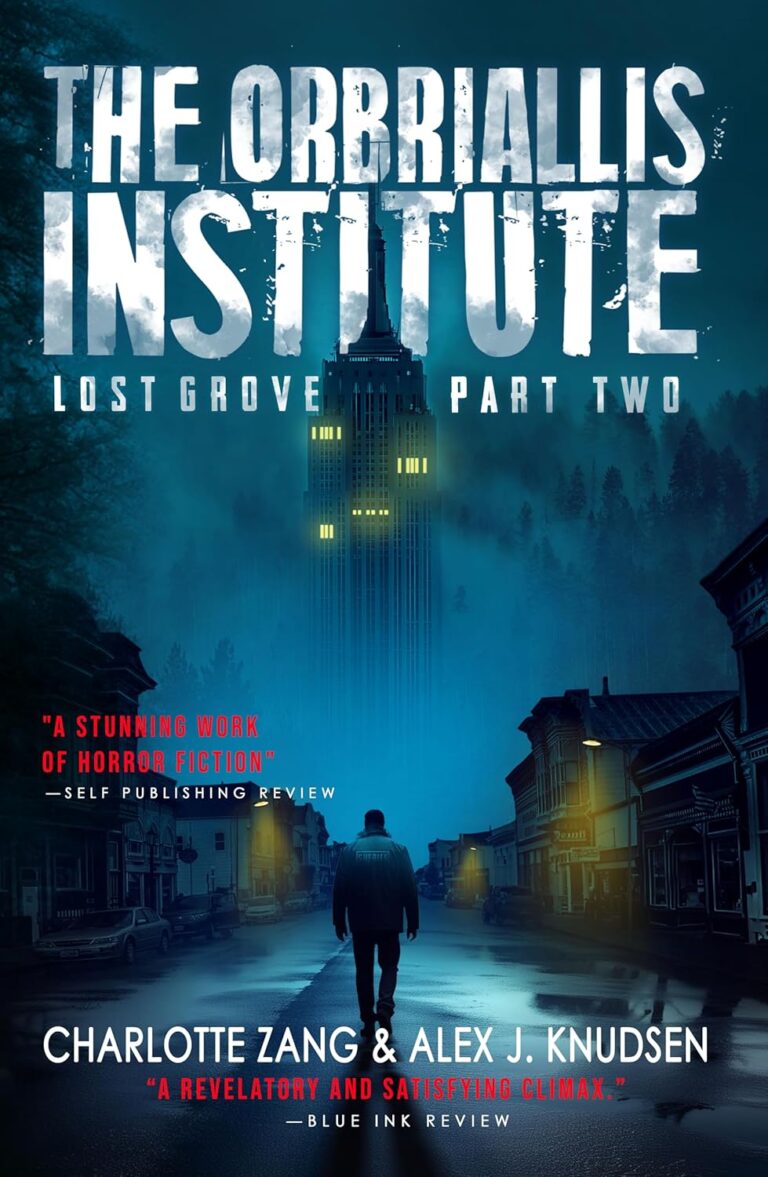The Orbriallis Institute – Lost Grove: Part Two received a 4+ star review, making it an IndieReader Approved title.
Following find an interview with authors Charlotte Zang and Alex Knudsen.
What is the name of the book and when was it published?
The Orbriallis Institute – Lost Grove: Part Two. As the title would imply it is the second book in a series, in this case, a duology. The book comes out October 8, 2024. Lost Grove: Part One was released earlier this year on May 7th.
What’s the book’s first line?
“The sun had set on Lost Grove, and the streets were deserted as the night’s chill wrapped around the town.”
What’s the book about? Give us the “pitch”.
In the haunted town of Lost Grove, Sergeant Seth Wolfe investigates the mysterious death of a young woman, leading him to the Orbriallis Institute—a cutting-edge medical facility hiding dark secrets. As he uncovers unsettling truths about its obsessive leader, local teens searching for a missing boy find themselves entangled in the same dangerous web. Together, they must unravel the institute’s deceptions before its secrets consume them all. The Orbriallis Institute is a gripping mystery where science meets the supernatural, and no one is safe from the truth.
What inspired you to write the book? A particular person? An event?
The small, coastal, Victorian town of Ferndale, California was the inspiration for this story. When Charlotte first visited the town, she was inspired by the magical essence, which prompted her to want to write a series of interconnected dark fairy tales. It settled into the background as she went on to write her second novel. Seeking a new story, she looked back at those stories and her scribbles turned into the scaffolding of all these characters that would inhabit the town soon to be named Lost Grove. Charlotte wanted the story to be a mystery or horror story and ended up writing a prologue about a character named Mary finding the dead body of a young woman named Sarah Elizabeth on Mourner’s beach. But she wasn’t sure where to take it from there. She shared it with Alex, who came up with the idea of a police procedural centered around solving the mystery of what happened to Sarah and who was responsible.
What’s the main reason someone should really read this book?
The Orbriallis Institute is a spine-tingling blend of mystery, horror, and the supernatural that will leave readers hooked from page one. With richly developed characters, chilling twists, and an eerie, atmospheric setting, this multi-layered story keeps you guessing until the very end. Get ready for a suspenseful journey that will have you turning pages late into the night!
What’s the most distinctive thing about the main character? Who-real or fictional-would you say the character reminds you of?
Sergeant Seth Wolfe’s qualifications as a seasoned homicide detective, having spent twenty years with the San Francisco Police Department, counterbalances his newly discovered gifts as a Spirit Walker. Both play an integral part in solving the mysteries in his small town. Seth reminds us of Lou Solverson, the police officer from seasons 1 & 2 of Fargo, played by both Keith Carradine and Patrick Wilson.
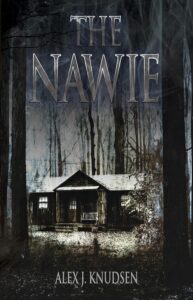
Alex: I had a film production company for many years that produced two features, four shorts and many music videos. I wrote a screenplay trilogy that I soon realized was going to be far too expensive to produce myself, so Charlotte urged me to turn them into novels instead. Ironically, before I set out on that quest, I was struck by a new idea for an epic horror story that would span many decades and countries, which ultimately turned into my first novel.
Charlotte: When I heard one of my favorite authors speak at C2E2 in Chicago, he inspired me to take my daydreams and do something with them. I had taken creative writing in college but didn’t know what to do with my life. I always had a rampant imagination, and hearing someone talk about taking those ideas and putting them out into the world changed the course of my life.
Is this the first book you’ve written?
Charlotte: No, I’ve written three other novels I’ve independently published. My first novel, surprising even to me, was a paranormal romantic comedy called Satan’s in Your Kitchen. It was surprising given that the authors who inspired me were Edgar Allen Poe and a bevy of dark fantasy authors. So, for me to come up with a bright, bubbly protagonist was something of a shock, even though the inspiration for the story was a creepy door in my friend’s house that opened to a cement wall. My second book, Consuming Beauty, started out from a recurring dream I had about an empty town, a candy store, and the lascivious man who ran it. What it turned into was a retelling of Beauty and the Beast that ended up providing a way for me, as an adult woman, to confront the grief I still had from my father passing away when I was eight. Then came Blooding. I met a man in Ireland who made movies (hint: it might be my co-author and husband). I had a dream that I went to college to make movies, but it turned into an occult-monster mash up that was the inspiration for the novel. Technically, my fourth, fifth and sixth books are a fantasy trilogy that will release next year. However, the edits got sidelined by Lost Grove. So, I joined my husband writing Lost Grove and The Orbriallis Institute before returning to the upcoming trilogy.
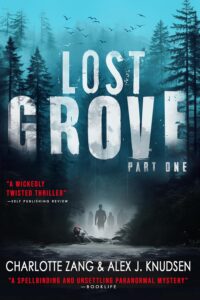
What do you do for work when you’re not writing?
Alex: I’m a Visual Effects Supervisor for film and television. I’ve worked on more projects that I can remember, but here are some of them: Avengers: End Game, The Revenant, Indiana Jones and the Dial of Destiny, The Flash, The Batman, True Detective, Reservation Dogs, Dark Winds, What We Do in the Shadows, The Falcon and the Winter Soldier, Big Little Lies, and Veep.
Charlotte: I work for an independent book publishing company, Paper Raven Books, in the book marketing division. I build websites, establish author branding, and help with social media. I get to work with other creatives every day. I get to see their books come to life and it’s very fulfilling. However, I work in the department that most indie authors will tell you is the most annoying part of being an indie author. And I can’t disagree with them. However, marketing can be fun, and if you just focus on a couple goals at a time, you’ll find yourself not only liking marketing, but seeing success in your endeavors.
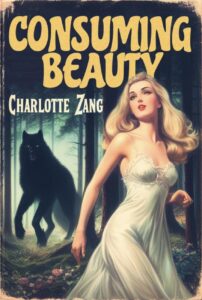 What’s the best and the hardest part of being an indie?
What’s the best and the hardest part of being an indie?
Charlotte: The best part? Total artistic freedom. You can’t beat that. If you want to write in twenty different genres, go right ahead. You can do whatever creative and interesting things you want that publishing companies either won’t do or won’t even think of. The hardest part? You have to be the writer, the PR, the editor, the designer, you have to wear all the hats, and sometime that can be overwhelming. But again, when you have creative license to do whatever you want, it’s hella rewarding.
Would you go traditional if a publisher came calling? If so, why?
Charlotte: Yes, I would. Traditional publishing can still offer you a magnitude of sales, and they can give you an opportunity to find your lifelong fans. And just because you’re signed doesn’t mean you can’t still indie publish like Ania Ahlborn or go the Brandon Sanderson route and have your projects funded by your fans.
Alex: I mean, probably? Yeah, I guess so. Hearing what Charlotte said about still having the freedom to publish Indie like the Queen of Horror Ania Ahlborn is a comfort. Ultimately, I would love for a TV or film production company to approach me about the rights to my books. This way, I could agree to sell the rights as long as I stayed on to adapt my own book, produce, and hopefully direct whichever project it might be.
Which writer, living or dead, do you most admire?
Alex: Oh gosh, there are so many. If I must pick just one, it would be the late Mo Hayder, taken from us far, far too soon. Her Jack Caffery series is, to me, the high-water mark of all mystery and detective novels. The depths of darkness she delves into in this seven-book series borders on unbearable in the best possible way. Her haunted, one might say cursed, lead, Jack Caffery, is my all-time favorite character. Her one-off The Devil of Nanking is one of the most powerful, gut-wrenching novels I’ve ever read. I miss her every day.
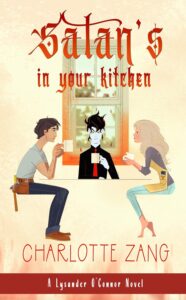 Charlotte: Well, I’d like to be different, but I can’t. When I really sat and thought about this question, there is one writer’s work that stays with me and that I try to emulate, and it is Mo Hayder. I think Alex is underselling just how haunting The Devil of Nanking is. It’s so visceral that I felt the need to shower after each read. And I will never get over a certain historic flashback in the novel involving a baby. You can’t ‘unsee’ it, in a good way. And her Jack Caffery series is one of the most heartbreaking detective series that transcends above its genre and tropes.
Charlotte: Well, I’d like to be different, but I can’t. When I really sat and thought about this question, there is one writer’s work that stays with me and that I try to emulate, and it is Mo Hayder. I think Alex is underselling just how haunting The Devil of Nanking is. It’s so visceral that I felt the need to shower after each read. And I will never get over a certain historic flashback in the novel involving a baby. You can’t ‘unsee’ it, in a good way. And her Jack Caffery series is one of the most heartbreaking detective series that transcends above its genre and tropes.
Which book do you wish you could have written?
Charlotte: Duh, The Devil of Nanking. Am I jealous? No. Okay, yes, a lot. I think I pretty much explained why, but I’ll add that Mo Hayder’s storytelling, weaving the past with the present, the way she can create an eerie and oppressing atmosphere that won’t let you go from start to finish, is something to honor and admire.
Alex: Geez, another brutal question. I could change my answer tomorrow, but I’m going to go with Case Histories by Kate Atkinson. The first time I read this book, I was blown away with her scintillating style of writing and engulfed by her multiple mysteries, all orbiting around private investigator Jackson Brodie, one of my all-time favorite characters. This novel was an unconscious inspiration to my forthcoming trilogy called The Loss. Recently, I reread the first five books in the Jackson Brodie series, for the third time, in order to get ready for her sixth entry, Death at the Sign of the Rook. I was aghast at how much I had stolen from her. The best possible inspirations are those that become a part of you without you even knowing.
